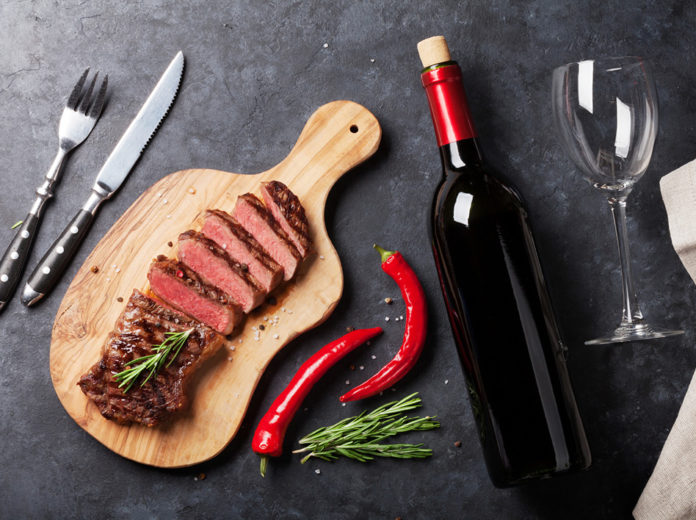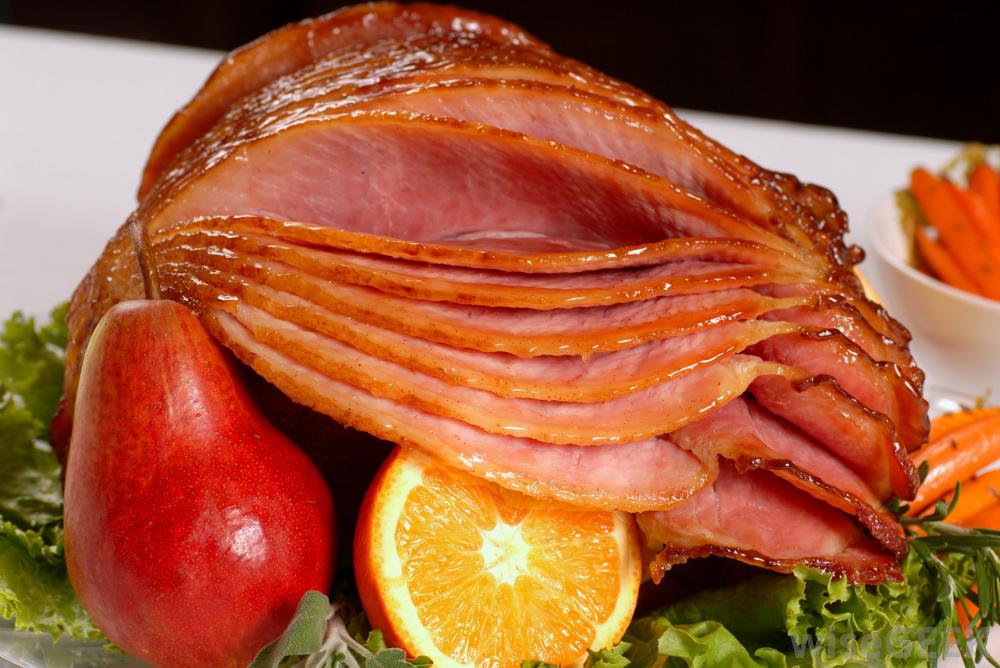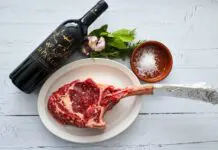
Break open your vintage bottles, it’s that time of year again! We share the best wines to enjoy this Christmas, regardless of what meal you’re serving.
If you’re serving turkey

Turkey is a Christmas classic made popular by the Victorians in the 19th century, and its legacy continues today. Yet because this white meat is low in fat and has a mild flavour profile, it is easily overpowered by the wrong wine.
Wines to serve
It is important to avoid wines with high tannin content, as they will overpower the meat and result in a bitter taste. Instead, opt for an acidic wine which balances out the flavours of the meal. Opt for medium-bodied reds or full-bodied white wines with high acidity and low to medium tannins, such as:
- Red Burgundy
- Pinot Noir
- White Burgundy
- Sparkling Shiraz
- Spanish Garnacha
- Mature Bordeaux
- California Chardonnay
- Chianti Classico.
These wines work excellently with the array of complex flavours in your meal (cranberry, stuffing, Brussel sprouts etc.).
If you’re serving lamb

Tired of turkey? Roast lamb makes for a delicious alternative, especially when slow cooked with rosemary and garlic. Its high fat content makes it the perfect match for red wine, but the way you cook it can determine whether you opt for a light or full-bodied one.
Wines to serve
If you’re serving your lamb pink, pair it with a light red wine to prevent overpowering the soft flavours. Wines with a soft fruity or spicy aroma like these work well:
- Rioja
- Syrah
- Dry rosé
- Top-quality Bordeaux
- Pinot noir
Alternatively, if you’re cooking your lamb towards the well-done end of things, a more intense and full-bodied red wine with balanced acidity and tannins will be ideal. Some of your options include:
- Cabernet Sauvignon
- Chianti
- Merlot
- Shiraz
- Nero D’Avola.
If you’re serving roast beef

Roast beef is another Christmas turkey alternative that has grown in popularity in recent years. Make it festive by cooking it with red wine, mustard, nutmeg, orange, thyme, horseradish or redcurrant flavours. Or for something different, try cooking your beef with dukkah for some authentic Egypt-inspired flavour – your guests might appreciate trying something new!
Wines to serve
The wine you select will depend on the cut of beef as well as the cooking time and flavours you use.
Cut
If you’re serving a leaner cut like silverside, sirloin or topside, you’ll want to select a high acidity, low tannin, medium-bodied red which doesn’t overpower the gentle flavours and cuts through the tender texture. Some wines to consider are:
- Merlot
- Bordeaux
Fattier cuts, including shin, fore rib and rump have a more intense flavour and demand a red wine with plenty of tannins (which will ‘melt’ the fats) and rich aromas. Options include:
- Cabernet Sauvignon
- Malbec
- Warm-climate shiraz
- Mulled wine
- Durif
Doneness
If serving your roast beef rare, a rich and fruity wine like these will work well to match its tenderness and succulence:
- Young Cabernet Sauvignon
- Pinot Noir.
Medium and well-done beef is ideal for wines with spicy, savoury flavours, such as:
- Grenache
- Merlot
- Beaujolais
If you’re serving ham

The Christmas ham is another traditional favourite, and it is believed to have emerged out of Medieval England. Sweet, glazed and smoking hot, few things cry ‘festivity’ as loudly as baked ham. But given the variation of flavours, how do you choose which wine to pair yours with?
If spicy
If your ham contains an element of spice, i.e. your glaze contains mustard, chili, cinnamon or the like, opt for a slightly sweet wine that can work with the smoky flavours, such as:
- Zinfandel
- Top-quality Pinotage.
If sweet
If your ham has a sweet glaze with something like cherry, marmalade or orange, a bright, medium-bodied red with high acidity, or a full-bodied white will work well. Here are some options:
- Shiraz
- Pinot noir
- Syrah
- Grenache
- Riesling
- Chenin Blanc
- Dry Vouvray
- Viognier
Flavour
The flavour profile of your dish will also affect the wine that you choose. Creamy sauces tend to work well with Chardonnay or Pinot Noir, whilst Chimichurri or horseradish flavours work well with fruity wines like Malbec or Syrah. Mushroom and peppercorn flavours work well with an earthy, complementary wine such as aged Cabernet Sauvignon or Pinot Noir. And red wine flavours? You guessed it – go for a full-bodied red like Shiraz!



















